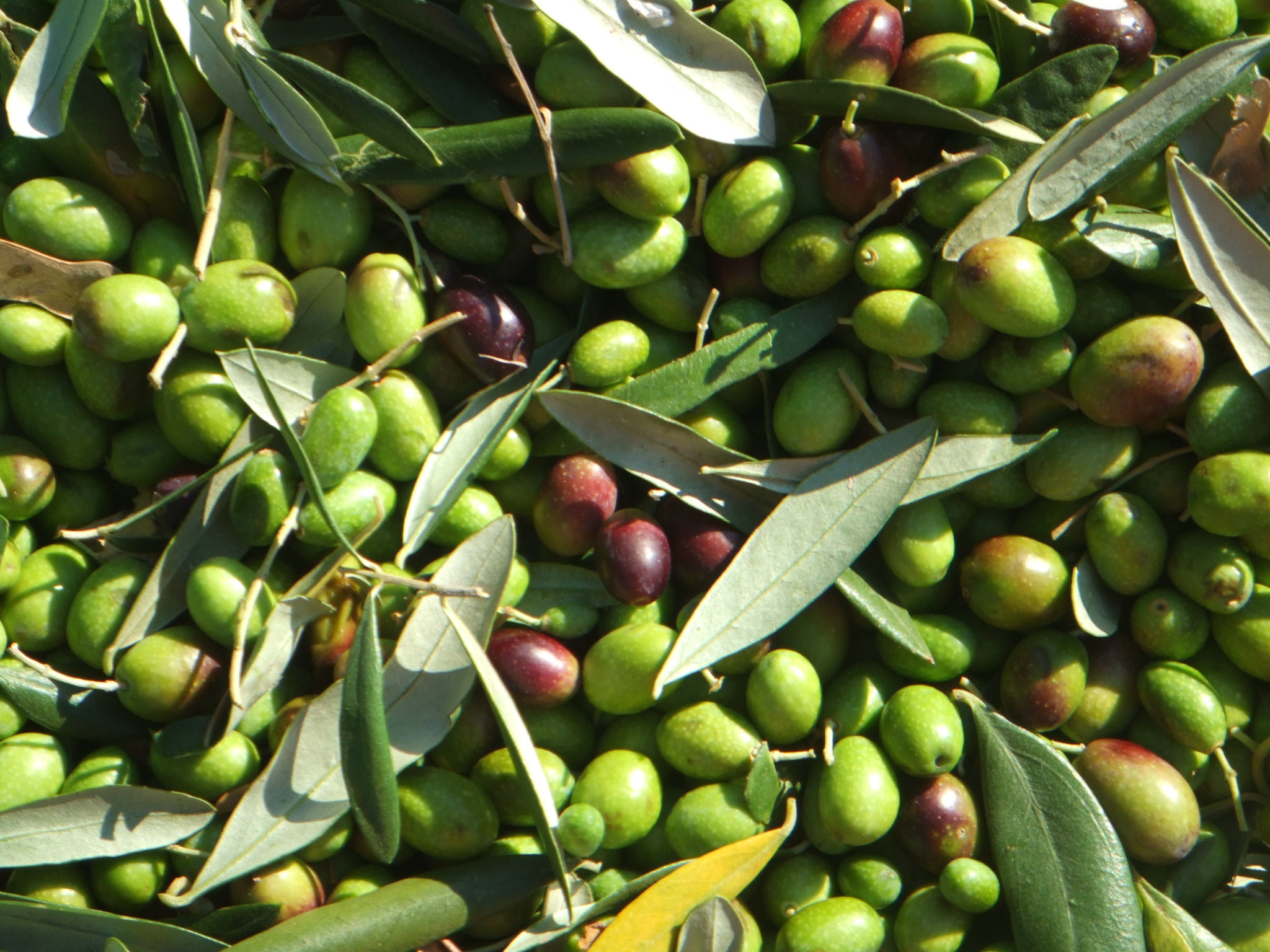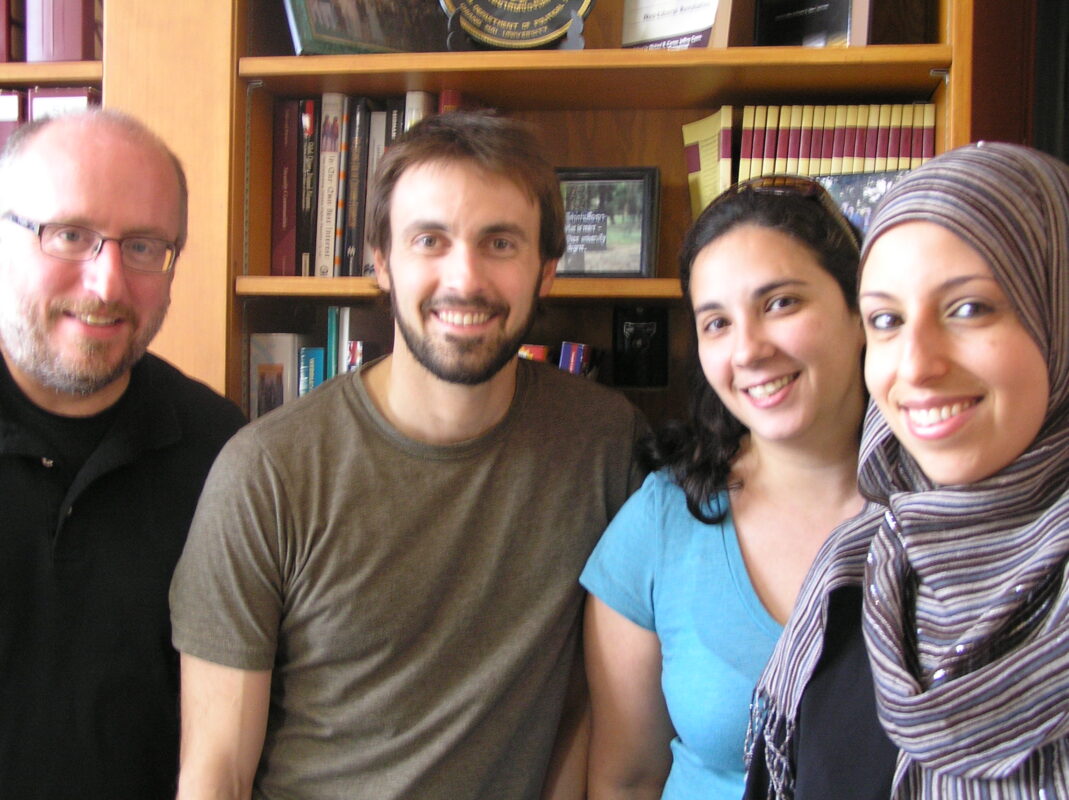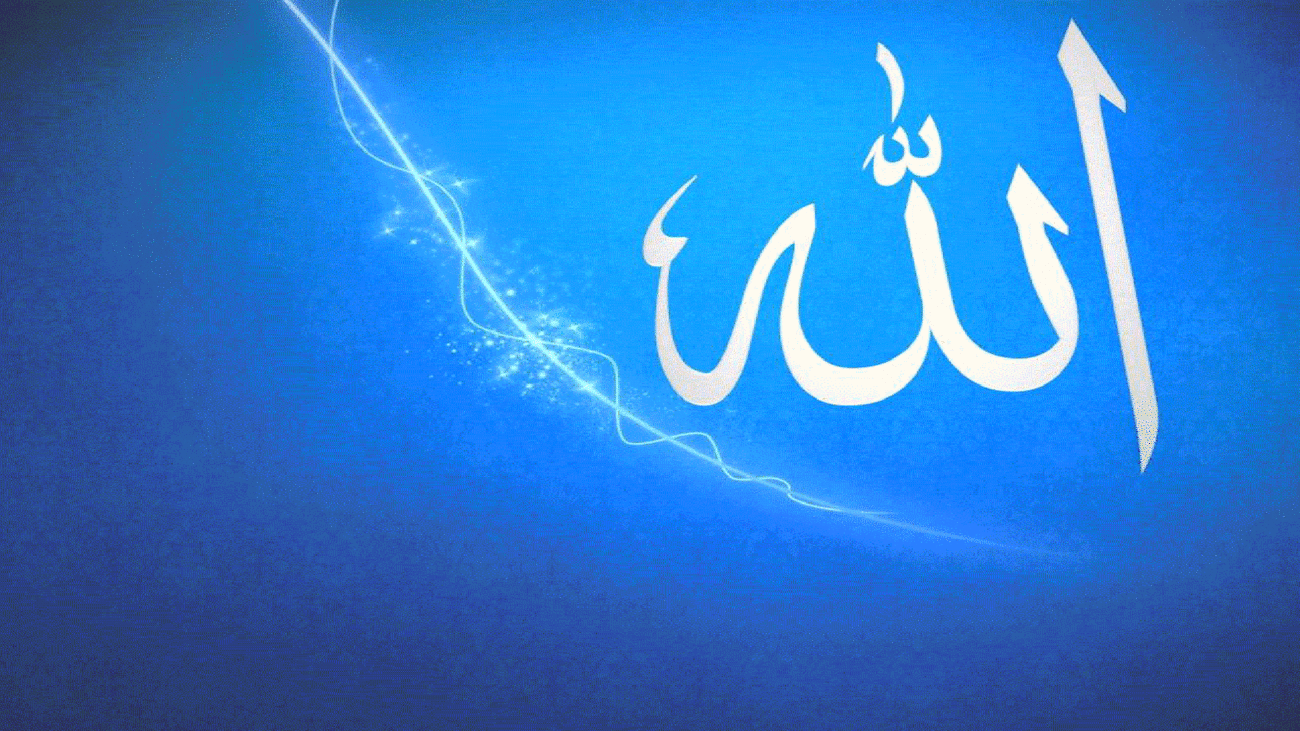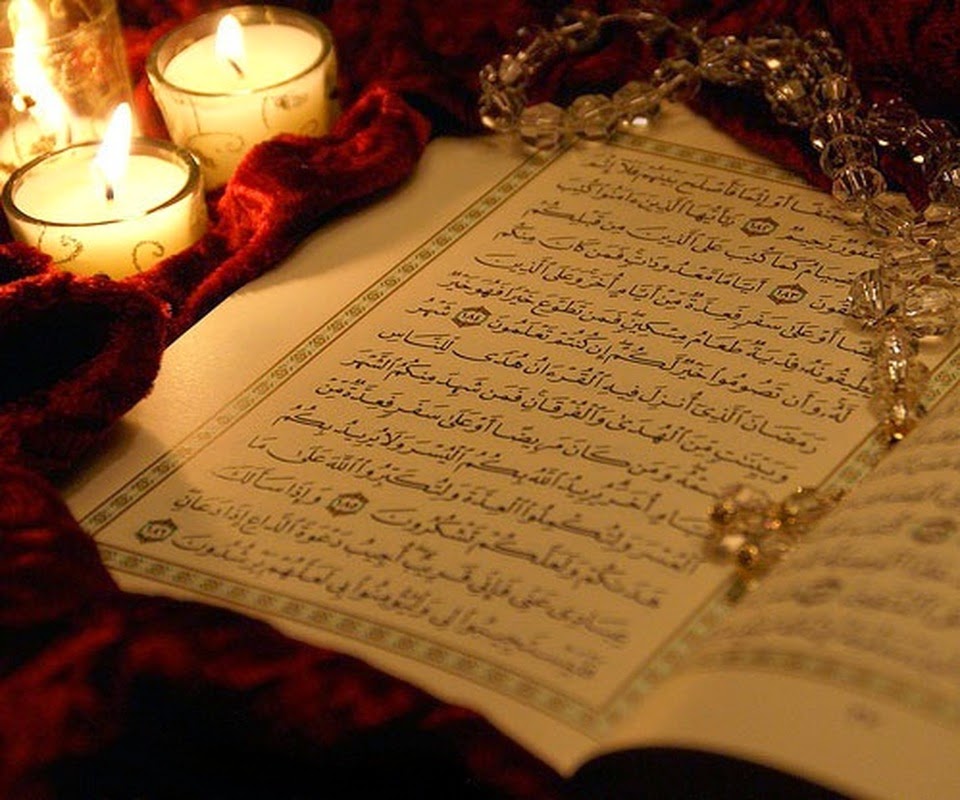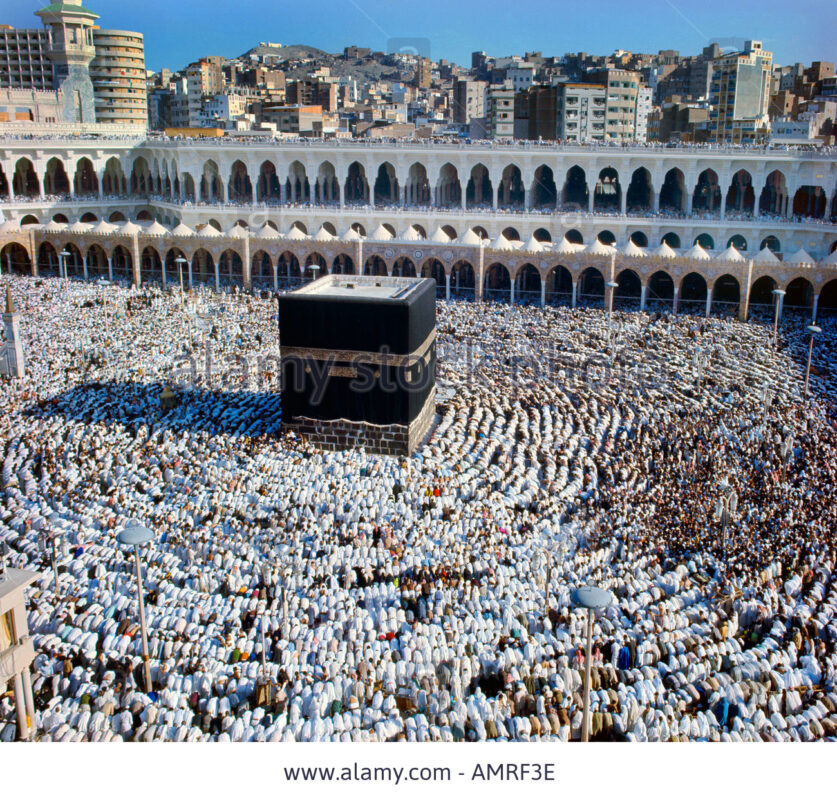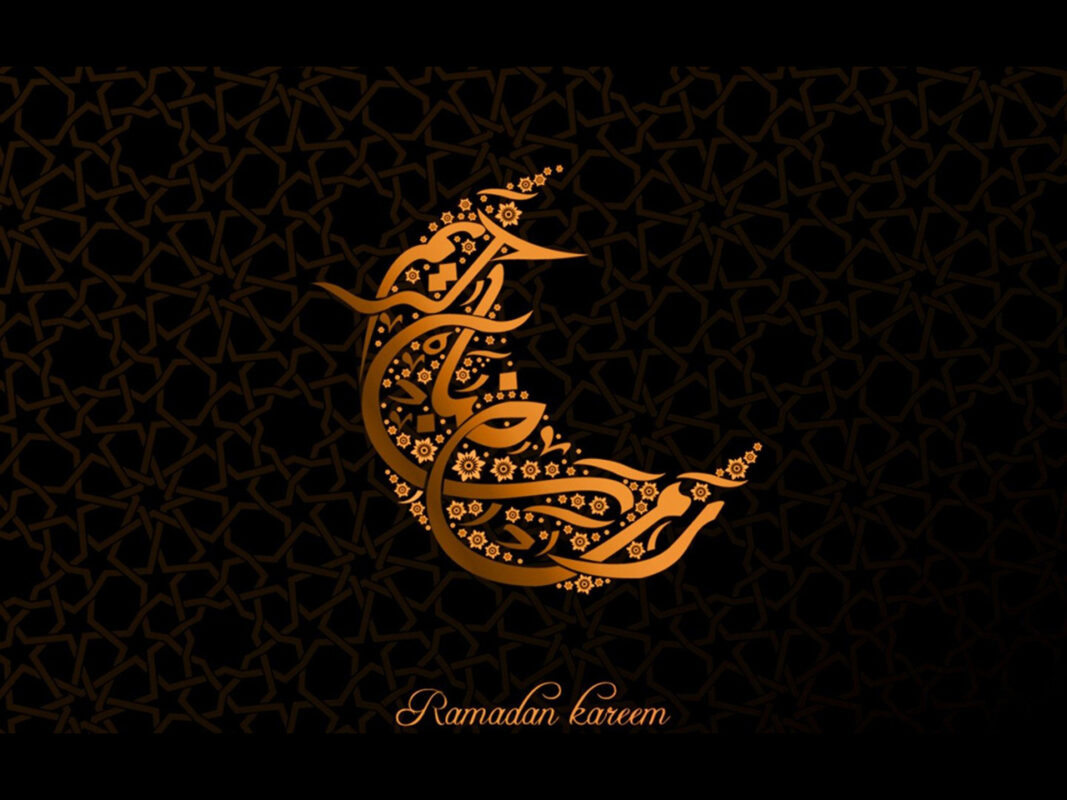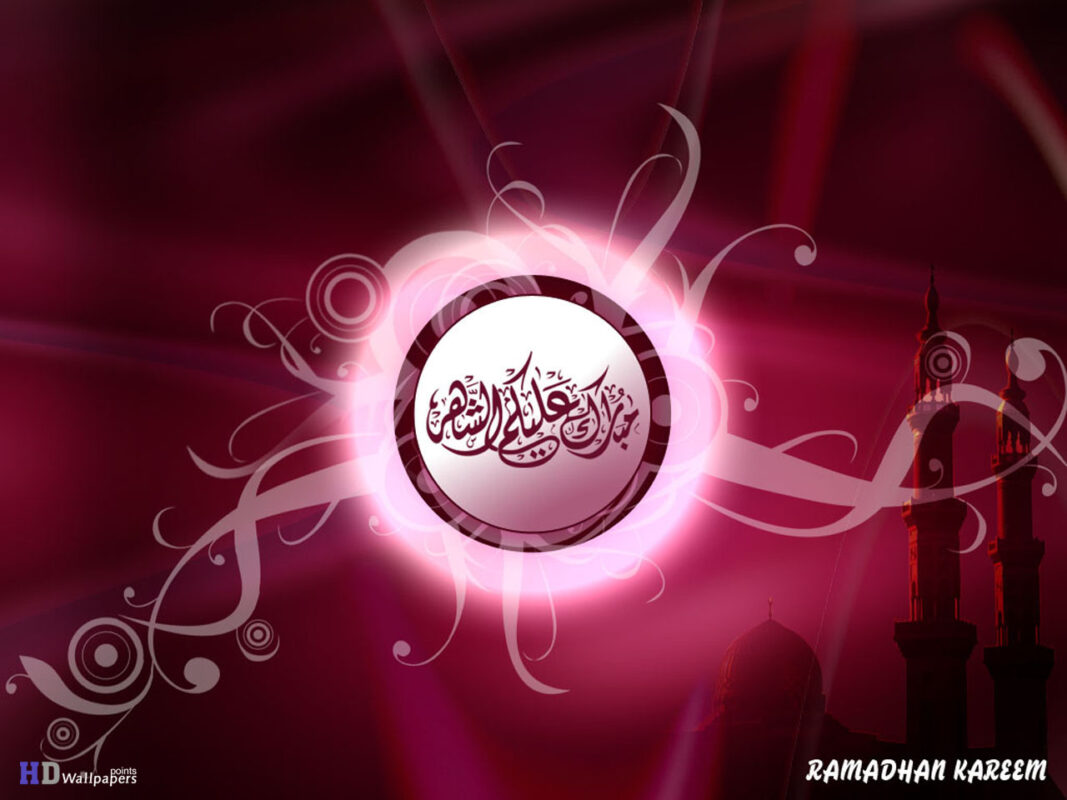“By the fig and the olive; By Mount Sinai; By this City of Security (Makkah)” (I)
These ayahs are the opening ayahs of Surah at-Tin (The Figs), a Makkan Surah and one of the shortest in the Holy Qur’an; it has only eight ayahs after The Basmallah (In the name of Allah, the most Merciful, the most Compassionate).
The theme of the Surah deals with two main issues. Firstly, that Allah has honoured man; he has created him in the best of forms and with an instinct to act righteously. He has honoured him with his lineage, which goes back to Adam (AS), who, as the Prophet Muhammad (peace be upon him) informed us, was created from dust. Man was honoured with the truth of belief in Allah (SWT) as his Lord, in Islam as His religion and in the Prophethood and the divine message as being the method of spreading knowledge of Him.
This religion (Islam) brought with it clear answers to the questions that confuse people throughout their lives, irrespective of their status or position. Some of these answers concern beliefs, worship, manners and behaviour, constituting the core of religion. Man cannot establish any true rules for himself concerning these issues, either as they concern transcendental matters such as faith and divine orders related to worship or because they are rules concerning his behaviour, such as ethical matters. Man has never been able to establish rules for his conduct based on his own ideas and abilities, all of which makes religion a necessary part of man’s life on Earth.
The religion must be a true religion, capable of providing man with a correct education and just rules for living by; the religion must be a clear, divine statement, devoid of human designs. This is the distinction between a true and untrue religion. The importance of faith in the life of man becomes clear here. Man is an honoured being about whom Allah (SWT) says in the Qur’an, what can be translated as:
“And indeed We have honoured the Children of Adam, and We carried them on the land and sea, and have provided them with At-Tayyibat (lawful good things), and have preferred them above many of those whom We created with a marked preferment” (II)
Allah (SWT) has granted His honoured creation (man) free will, thus he rewards him for the good deeds he does and punishes him for his bad deeds. Allah (SWT) has made him fully prepared to accommodate this freedom in his body, soul, sentiments, mind and senses. He has made man’s freedom of choice a reason for bestowing honour on him and a means for evaluating his deeds; the more he abides by the rules Allah Has laid down for him, the higher rank of human perfection he reaches.
There is no better proof for this than in the Hadith Qudsi in which the Allah (SWT) says what can be translated as:
“My bondsman (servant) continues to draw near to me with supererogatory works so that I shall love him. When I love him I am his hearing with which he hears, his eyesight with which he sees, his tongue with which he talks, his heart with which he perceives. Were he to ask [something] of Me, I would surely give it to him, and where he to ask for my victory, I would surely grant it to him. The best ways to worship me, my servant, is to advise for my sake” (III)
During Prophet Muhammad’s (PBUH) night journey, the mi’raj, he was accompanied by Jibril (Gabriel), who stopped at a certain point whereas Prophet Muhammad (PBUH) continued his ascension. Jibril told Muhammad (PBUH) that he could not go further as he would get burned whereas he, Muhammad, could continue. This is an honour no other creatures have achieved nor could ever achieve.
The more man elevates his standing through his good character, the more honour he is given by Allah (SWT); however, this honour can be also removed should man degrade himself by going against his instinct to do good, thus falling beneath the rank of such honour. Then man is rendered to the lowest of the low in this life with his wretchedness and is thrown into the lowest part of Hell in the hereafter. Allah says in the Qur’an what can be translated as
“Verily, We created man in the best stature (mould). Then We reduced him to the lowest of the low. Save those who believe (in Islamic Monotheism) and do righteous deeds. Then they shall have a reward without end (Paradise)” (IV)
Some interpretations given for these ayahs state that they mean that Allah (SWT) has created man in the best form, shape and appearance; He has given him a brain, organs, senses, emotions, the ability to acquire knowledge and skills, free will as well as other qualities, talents and abilities that assist him in his life on Earth. They grow with him, peaking in youth and then start their gradual decline and disappearance as one grows old. Weakness succeeds strength and inability succeeds ability. If he is a disbeliever, Allah leaves him to his human weakness and impotence. If he is a devout believer, Allah honours him in his old age, pardons his shortcomings and gives him his due reward even if his weakness prevents him from performing the acts of worship (prayer, fasting, etc.) properly.
Ibn Abbas (RA) reported that Prophet Muhammad (PBUH) said:
“When a believer gets old and is unable to carry on performing the religious practices he used to do, Allah writes down for him the good deeds of such performances as if he did them”
It is also stated in Bukhari that Abu Musa Al-Asha’ri said that the Messenger of Allah (PBUH) said:
“When a believer gets ill or is travelling, Allah writes down for him the good deeds of the religious practices he used to do when he was healthy at home as if he did them.”
These ayahs could quite easily entail both interpretations; these ayahs discuss those who have become weak in old age. At such an age, Allah shows mercy to His believers and leaves the disbelievers in their weakness and impotence. The second interpretation concerns the hereafter and the dreaded terror and punishment. Allah will save His devout worshippers, granting them their due reward, whereas the disbelievers will be thrown into the lowest part of Hell. There are other likely interpretations for these ayahs and Allah knows best concerning them.
The second issue the Surah deals with is the religion (Islam) Allah revealed to mankind gradually through more than 315 Messengers. Allah chose these 315 Messengers from the 120,000 Prophets He sent. All Messengers were sent with the message of Islam; they called on their people to worship Allah alone. The laws sent to nations differed from time to time, yet the message was always the same:
“O my people! Worship Allah! You have no other Ilah (God) but Him. (La ilaha illallah: none has the right to be worshipped but Allah).Certainly, I fear for you the torment of a Great Day!” (V)
Allah completed His message to mankind by sending Prophet Muhammad (PBUH), the seal of the Prophets. As his was the final message, Allah made mention of it in the preceding messages. Allah promised to preserve it in the language in which it was revealed in (Arabic). This final message has been preserved, word for word, letter for letter, for more than fourteen centuries and shall continue to be so until the Day of Judgment. Such preservation is a miracle in itself as none of the other divine books have been preserved in their original state. Allah left the task of the preservation of these books to their people; consequently, parts of these books were either lost or distorted. The distortion of these books has deprived them of their divinity and has made them incapable of guiding people.
The blood baths and destruction that sweep Palestine in the names of Moses, Jacob, Isaac, and Abraham (AS), all of whom have nothing to do with the matter, provide ample proof of this. The same as occurs in Iraq and Afghanistan in the name of Jesus (AS), who is innocent of all the crimes and infringements of the simplest human rights that occur there in his name. In the name of religion, the weak are caught up in such conflicts; religion, however, for its part, is innocent of all of this.
It is for this reason that the concluding ayahs of Surah at-Tin address every disbeliever with the critical question that can be translated as:
“Then what can (or who) causes you (O disbelievers) to deny the Recompense (i.e. the Day of Resurrection? Is not Allah the Best of judges?” (VI)
These ayahs pose the question; what pushes you – disbeliever or polytheist – to disbelieve in Allah after you have seen all these proofs of His creative power and of His ability to resurrect the dead and to judge whether to punish or reward His creation in the Hereafter? This is the truth that has been brought down in all of the divine messages and has been emphasized in the final one, the Qur’an, preserved by Allah. This evidence puts every sinner and disbeliever in the category of those who deny the faith and the truth that Allah is the wisest of all judges; Allah who created all things and judges wisely between his creatures. The Surah concludes with an affirmative question after the negative one which precedes it.
Prophet Muhammad says in the Prophetic narration:
“When you recite Surah at-Tin and reach the end where it says: ‘Is not Allah the Best of judges?’ Say, ‘yes, He is the wisest of judges, and to that I am a witness”
Malik says, “Al-Bura’ Ibn Azeb reported that the Messenger of Allah, while travelling, recited Surah at-Tin in his prayer. He said that he never heard a recitation more beautiful than that of the Messenger of Allah’s”
Surah At-Tin is the only Surah in the Qur’an which has the name of a fruit or a plant. The fig is mentioned in it once and as such is the only mention of figs in the whole Qur’an; olives and the oil derived from it, however, are mentioned in six other ayahs. The Surah begins with Allah swearing by both the figs and the olives. Allah does not need to swear by anything to prove a point to His worshippers; the aim behind this oath is to draw attention to the high nutritional importance of these two types of plants and to the importance of the blessed lands in which they grow.
Ibn Abbas (RA) said: “Allah means the figs you eat and the olives from which you press oil.” Allah links this oath to another by mentioning two holy places, Mount Sinai and the City of Security (Makkah). Allah says what can be translated as:
“By the fig, and the olive. The Mount of Sinai. By this City of Security (Makkah)” (I)
Some scholars have stated that figs and olives are references to the lands in which these two plants grow; Mount Sinai is the mountain upon which Moses conversed with Allah and is found in the Sinai’ peninsula. “Sinai”, in Arabic, means ‘the beautiful or the blessed’. Nowadays, this mountain is known as the Mountain of Moses or the Mount of Al-Munajah (the discourse). The City of Security is the holy city of Makkah with the sacred mosque of the Kaba; the first sanctuary for mankind. These places have an unquestionable relation to the divine revelation. Linking these holy places with an oath by the figs and olives has led some scholars to say that Allah may be referring to the honour of the lands in which both plants grow; Jerusalem and Mount Zeta where the holy Al-Aqsa mosque was built. We ask Allah to liberate the mosque, liberate Palestine and all Muslim countries from tyrannical occupation, Amen.
Figs and olives (of many varieties) are grown in the Levant and south-eastern Turkey. In the Levant, one finds Mount Tina near Damascus, which is the land of gathering (where mankind will gather on the Day of Judgment). In Turkey, there is Mount Judei where Noah’s Ark came to rest and where the remains of Noah’s mosque are to be found. Furthermore, to each of these three places, Mount Sinai, Jerusalem and Makkah, Allah has sent three of his most important Messengers. Allah sent His Prophet Jesus (AS) to Jerusalem. He spoke to His Prophet Moses on Mount Sinai. As for Makkah, most of the Prophets visited the city and are buried there; it is, of course, also the city where Allah revealed his message to His Prophet Muhammad (PBUH).
Though the Qur’an clearly brings at the beginning of the Surah the mention of two edible plants (figs and olives), yet that does not deny the fact that this oath might also refer to the lands where they grow. It then becomes obvious that the oath is connected to places, when the other part of the oath brings the mention of two holy places (the holiest of which is Makkah).
After the first four oaths, Allah states the reason for which He made these oaths in what can be translated as:
“Surely We created man of the best stature; Then We render him the lowest of the low. Save those who believe and do good works, and theirs is a reward unfailing” (IV)
The Surah is then concluded with a rebuking and reprimanding question for every disbeliever, polytheist and sinner, in the ayah that can be translated as,
“Then what can (or who) causes you (O disbeliever) to deny the Recompense (i.e. the Day of Resurrection? Is not Allah the Best of judges?” (VI)
In reply, one can only say, “Yes, Allah is the wisest of judges and on this I am a witness”, as the Messenger of Allah (PBUH) taught us.
Tenets of faith in Surah At-Tin:
- Allah (SWT) has created man in the best form. The disbelievers, polytheists and sinners will be the lowest of the low in this life and the hereafter. As they grow old, Allah will make them weaker and inflict them with disease. In the hereafter, they will then be sent to the lowest place in hellfire. However, those who believe and do good deeds will be honoured by Allah; in this life, they will be honoured with His blessings, care, generosity and mercy. In the hereafter, Allah will make them enter Paradise and give them their due reward.
- The only religion acceptable to Allah is Islam. It is the religion Allah revealed gradually to his apostles and sealed with the Prophet Muhammad, preserving it in the language of its revelation (Arabic).
- True faith is exemplified by good deeds.
- He who denies the truth of Islam is exempt from Allah’s mercy and is doomed to live in misery in this life and the hereafter no matter how rich, noble and famous he is.
- Allah (be He Exalted) is the Wisest of judges.
Signs of creation in Surah At-Tin:
- Allah swore by both the figs and the olives owing to them being complete foods of high nutritional value for human beings. He also mentioned the sanctity of their native lands.
- Allah swore by the holy mountain, Tur, in Sinai where He spoke to His Messenger and servant, Moses.
- Allah swore by the City of Security, Makkah, in which the first sanctuary for mankind was built. Modern science has proved that Makkah is the most unique place on earth.
- Allah refers to man as having been created in the best of statures.
- Allah warns people that they could be reduced to be the lowest of the low in this life and the hereafter. Allah makes man the most honourable of all creation when he is a good believer and the most hateful when he is bad or a disbeliever. Behavioural science recognizes such depravation in many people nowadays.
Each of the issues mentioned above require separate research. I shall limit my essay to a discussion the first three ayahs of this Surah. Before I begin, let us have a quick look at some scholar’s interpretations of these three ayahs
Interpretation of these ayahs by some scholars:
Concerning the interpretation of the following ayahs:
“By the fig, and the olive. The Mount of Sinai. By this City of Security (Makkah)” (I)
Al-Tabari (May Allah has mercy on him) says:
What is meant by “the figs” is the fruit that people eat and “the olives” is that which is pressed for oil. Allah swore by both of them. There is a difference of opinion concerning the ayah, “And the Mount of Sinai”. Mount Sinai is a well-known mountain; it is said to be the mountain upon which Moses conversed with Allah and built his mosque. “And this City of Security” refers to the holy city of Makkah which is safe from attack or invasion.
Ibn-Kathir says:
Scholars have differed in their interpretation of these ayahs. Some of them said that in saying “by the figs”; Allah is referring to Damascus and its mountain. Al-Qurtubi said: It refers to the mosque of the sleepers in the cave. It has been narrated that Ibn-Abbas said: It refers to Noah’s mosque on Mount Judei. Mujahid said, concerning the figs: The oath refers to the fruit you eat. As for the olives, Qatada said the oath refers to Jerusalem. Mujahid and Ikrima said: Allah means the olives that are pressed for oil, by “Mount Sinai” Allah means the mountain upon which Moses conversed with Him, while “the City of Security” is Makkah. Ibn-Abbas, Mujahid and some scholars said that Allah had sent three of his most important Messengers to each of these three places and it was to them (Moses, Jesus and Muhammad) that Allah revealed the major scriptures. The first place is the land of figs and olives, which is Jerusalem, where Jesus was sent. The second is Mount Sinai where Moses talked to Allah. The third is the “City of Security” which is the holy city of Makkah where Prophet Muhammad was sent.
Scientific implications in the first three ayahs of Surah At-Tin:
Parts of the fig’s creation wonders
The fig is a complex accessory fruit that is actually an inside-out flower cluster called a synconium, formed as a result of the growth of synconia in the shape of a cone. Tiny female flowers (pistil) line the inner surface of the synconia while male flowers (stamens) spread out around the outer layer which is narrow at the top. The female flowers usually mature before the male ones. Allah Has assigned the fig wasp (blastophaga) to help pollinate the fig flowers. The relationship is symbiotic; fig flowers provide a warm safe place for blastophaga larvae to stay and feed in until they become adults. As the adult wasps make their way out of the flower, their bodies come into contact with the male flowers, pollen sticks to the body of the insects that then carry the pollen to the female flowers, pollinating them and allowing fertilization to begin. Three generations of flowers are found in the fig tree. The first generation contains the male and insect-hosting flowers. The second generation of flowers is female ones pollinated by the insects coming out of the first generation flowers. These insects fertilize the flowers producing the main harvest of the fig tree. The third generation flowers contain insect-hosting flowers where the insects spend the winter.
Who else but Allah could set up such an accurate reproductive system for the fig tree? Who else but Allah could teach the fig wasp that its home is in the flower of fig tree to assist fertilization as it moves from one flower to another? The relationship between this insect and the fig flower is one of the most amazing examples of symbiosis between plants and insects.
The benefits of figs
Figs are rich in carbohydrates which form 53% of their overall mass. Monosaccharide and carbohydrate compounds make up the majority of carbohydrates present along with a small amount of proteins (approximately 3.6%) and smaller amounts of potassium, calcium, magnesium, phosphorus, iron, copper, zinc, sulphur, sodium and chorine. Figs also contain many vitamins, enzymes, acids, antiseptic agents, high fibre content (18.5%) and a high percentage of water. Among the special enzymes found in the fig is an enzyme called ficin which has been found to play an important role in digestion.
Japanese scientists have discovered an aromatic aldehyde compound, benzaldehyde (C6H5CHO) in figs. This chemical compound was extracted from figs and has proved to be effective in fighting carcinogens. Carbohydrates compounds known as the soralins have also been discovered in figs; these compounds play an important role in fortifying blood against a number of disease-causing viruses and parasites, such as hepatitis C. This carbohydrate group is found in large amounts in figs; in its syrup, juices and jams.
Fig have also proved to be beneficial for breastfeeding mothers, in treating hemorrhoids, chronic constipation, gout, chest diseases, menstrual disorders, epilepsy, mouth ulcers, gingivitis, tonsillitis, pharyngitis, leucoderma, removing warts, healing injuries, and different kinds of ulcers. Thus, Abu Darda’ narrated that the Messenger of Allah (PBUH) said, “If I were to tell you of a fruit that has been sent from paradise, it would be the fig. Fruits of paradise are without pits. Eat the fig as it is a cure for hemorrhoids and gout”.
Swearing an oath by the olives:
Olives and olive oil are mentioned in the Qur’an seven times; one of these occasions is where Allah swears by the fig and the olive at the beginning of Surah At-Tin. The olive tree is a blessed tree and so is its fruit. It is a perennial tree which can live for more than a thousand years. It is considered an important source of oil. Olive oil is one of the healthiest oils; it contains very small amounts of fatty acid and does not increase the amount of harmful fats in the blood as other kinds of oil do. This is because the fats in olive oil are all unsaturated and do not cause atherosclerosis, hypertension or any other diseases. Olive oil is a yellow transparent fluid rich with oleic acids, used in cooking or added to salads. It plays an important role in deoxidizing the cholesterol secreted by the body. This is because it contains vitamin E as well as other chemical compounds known as polyphenolic compounds which prevent the oil from autoxidizing, protecting the body from the dangers of harmful lipid peroxides.
Regular consumption of olive oil decreases the overall amount of cholesterol in the blood and its other harmful kinds in particular. More particularly, it reduces the possibility of heart diseases and cancer. Aside from its use in cooking, olive oil is an ingredient of many medicines, ointments, hair oils, soap, and it is also used in oil lamps because of the clear flames it produces.
Curing olives preserves them for use in food. The oil content of an olive is approximately 67-84% of its mass. Olive oil is made up of important chemical compounds, including glycerol compounds and fatty acids known as glycerides. Fatty acids make up a high percentage of the oil’s mass; oleic acid constitutes the largest percentage of the fatty acids in olives and olive oil, along with small amounts of palmatic acid, linolic acid, stearic acid, and mystric acid. Moreover, olives and olive oil contain a moderate amount of proteins and smaller amounts of potassium, calcium, magnesium, phosphorus, iron, copper, sulphur and fibre. These elements are needed to produce about a thousand chemical compounds that are essential and useful for the wellbeing of the human body. For these reasons and for others unknown to us about olives, Omar Ibn Al-Khattab (Allah Be pleased with him) reported that the Messenger of Allah (PBUH) said, “Eat olives and use its ointment for it comes from a blessed tree”. Muadh Ibn Jabal (Allah Be pleased with him) reported that the Messenger of Allah (PBUH) said, “The best miswak [1] is that of the olive tree as it is a blessed tree. It is my miswak and that used by Prophets before me”.
Allah swears by the olive and mentions it seven times in the Qur’an. Olive and olive oil are rich in fats and proteins and low in carbohydrates (sugar and starches) whereas the fig is rich in sugar and starchy compounds, and low in fats and proteins. Therefore, figs and olives fulfil the human body’s need for nutritional substances. The oath sworn on them at the beginning of the Surah is a scientific miracle revealed in the Qur’an 1400 years ago.
Swearing an oath by Mount Sinai
This is Mount Tur in Sinai, or the Mountain of Moses where the Torah was revealed to Moses. It is mentioned in 12 ayahs in the Qur’an (in Surah Al-Baqara: ayahs 63, 93, An-Nisa’: 154, Al-A’raaf: 143, 171, Maryam: 52, Ta Ha: 80, Al-Mu’minun: 20, Al-Qasas: 29, 46, At-Tur: 1 and At-Tin: 2). One Surah (chapter) even bears its name (Surah At-Tur). It is, of course, a blessed place worthy of having an oath sworn by it.
Swearing by the City of Security
The City of Security is the holy city of Makkah where the first place of worship for mankind was built. The Messenger of Allah said, “The Ka’ba was a small hill over water, then the earth formed under it”, meaning that the earth under the Ka’ba is the first piece of land to have appeared on the surface of the huge ocean that covered Earth in the beginning. Then land started to spread around this blessed place to form a continent called the “mother continent” (Pangaea). Pangaea was then divided, forming the seven continents. These continents were much closer to each other than they are now. Later, they started drifting away from each other or colliding with each other until they settled in their current locations. Scientifically, it has been proved that Makkah is and was the centre of land throughout all phases of Earth’s development. In other words, if one draws a circle with Makkah at the centre, the circle would completely surround the solid land on earth. Allah says in the Qur’an what can be translated as:
“Verily, The first House (of worship) appointed for mankind was that at Bakkah (Makkah), full of blessing, and a guidance for Al-‘Alamin (mankind and Jinn)” (VII)
These ayahs that compare the earth (in its smallness) with the heavens (with its large dimensions) point to the earth being the centre of the universe as does the ayah which talks about the separation and the unification of the earth and the heavens. If the earth was the centre of the universe and the Ka’ba was the centre of the land on the primary earth, then below it are six layers of earth, above it seven skies, making the holy Ka’ba the centre of the centre of the universe. The Messenger of Allah (PBUH) said, “The shrine of Makkah, is a midpoint shrine; it is centralized between seven layers of earth and seven layers of skies”
He further emphasizes this fact by saying, ”O people of Quraysh, O people of Makkah, you all stand parallel to the centre of heaven!” Also, the Messenger of Allah once asked his honourable companions, “Do you know what the Bait al-Ma’mur is?” They replied, “Allah and His Messenger know best”. He said, “It is a house in the seventh heaven exactly above the Ka’ba, if it fell, would fall right over it. Seventy thousand angels enter into it every day; when the last of them come out they do not return there again”
All these miracles make Makkah the place that Muslims turn to five times daily in prayers and their place of pilgrimage in which one prayer is equivalent to one thousand prayers elsewhere. It was also the hometown of many Prophets. The Messenger of Allah (PBUH) said, “When their nations perished, Prophets used to migrate to Makkah, stay there with their followers, and worship Allah until they died. Noah, Hud, Salah, and Shu’aib all died in Makkah and were buried between Zamzam well and the black stone”. Prophet Isma’il (Ishmael) and his mother Hagar were both buried at Hajr Ismail, a place in Makkah. Allah also chose Makkah to be the birth place of His last Messenger.
He swore by the city in Surah At-Tin and Surah Al-Balad (The City) which He named after Makkah. Allah gave Makkah the epithet of ‘the mother of all cities’ (Ummul Qura) as it was the place where land first appeared and is subsequently the mother of all the earth. Makkah is thus worthy of having an oath sworn by it and of being called the ‘City of Security’ in Surah At-Tin, and was worthy of having a Surah named after it, Al-Balad.
These scientific facts about the fig and the olive, about Makkah, the city of security and the historical and religious facts concerning the meeting between Allah and his servant, Moses, on Mount Tur, were all facts unknown to the inhabitants of the Arabian peninsula and to all mankind at the time of their revelation 1400 years ago and for many centuries after. The oath by the fig and the olive could never be one taken by man; it is the word of Allah and the proof of the Prophethood of His last Messenger, Muhammad (peace and blessings be upon him). It proves that the Messenger of Allah received the inspiration from Gabriel and was taught by the Creator of the heavens and earth, Allah.
May peace and blessings be upon him (Muhammad), his companions and those who follow him until the Day of Judgement. Praise be to Allah who revealed the Qur’an and granted the blessing of Islam. Praise be unto Allah until we meet with Him and should He will it, He will be pleased with us. He is the Merciful, the Most Generous, and the One who guides to the right path.
(I): Surah At-Tin (The Figs): 1-3
(II): Surah Al-Israa (The Journey by Night): 70
(III): Reported by al-Tabarani
(IV): Surah At-Tin (The Fig): 4-6
(V): Surah’s Al-Araf: 59, 65, 73 and 85 and Hud: 50, 61, and 84
(VI): Surah At-Tin (The Figs): 7-8
(VII): Surah Al-Imran (The Family of Imran): 96
Source: Dr. Zaghloul El-Naggar [External/non-QP]

